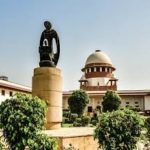The appellants, previously found guilty of abetment to suicide and criminal conspiracy under the Indian Penal Code, had their convictions affirmed by the High Court. The Supreme Court’s review focuses on the definition of abetment, requiring proof of direct or indirect incitement with clear intent and proximate action to the suicide. The court analyzes inconsistencies in witness testimonies, the delayed reporting of the suicide note, the absence of physical evidence like recovered poison or blackmail materials, and the unexamined handwriting expert’s testimony, ultimately leading to the setting aside of the appellants’ convictions.
Penal Code, 1860, Sections 306 and 114 – Abetment to commit suicide – offence not made out – Appeal against conviction – Appreciation of evidence – Abetment to commit suicide – Though the incident had occurred on 25.04.2009, the complaint was lodged by PW-2 on 14.05.2009, thus there being a delay of 20 days – Though delay in lodging of first information is not always fatal but considering the fact that in this case, the delay is of 20 days which has remained unexplained, it would have a material bearing on the prosecution case.
PW-11 who served as the head constable in the concerned police station, deposed that she was on duty in the afternoon of 14.05.2009 when the complaint came to be registered – In her cross-examination, she stated that she was also on duty when Diary Entry No. 17/09 dated 24.04.2009 was made – She was categorical in her statement that no suicide note was found at the time of the inquest; no such note was presented at the police station either – There are significant inconsistencies in the evidence of the prosecution witnesses regarding the occurrence – In so far the suicide note is concerned, PW-2 stated that PW-7 had told her on the next day about the same – It was only then that she came to know that her husband had written a suicide note – In fact, when the panchnama was drawn on 25.04.2009, no note was found on the body of the deceased – She stated that from the time of death till the lodging of complaint, the suicide note was with PW-7 – This again cast serious aspersions about the credibility of the suicide note
That apart, there is nothing on record to show recovery of any jewellery (ornaments) by the police from the accused persons – No signed cheques of the deceased or cheque book or passbook of the deceased were recovered and exhibited in court – In such circumstances, the very sub-stratum of the prosecution case that the accused persons were making illegal gain by blackmailing the deceased falls flat.
As per the post mortem report, cause of death was due to consumption of Dichlorvos Organophosphorus Non-thio poison – However, there is no recovery of any trace of the poison consumed by the deceased at the place of occurrence – No bottle/container of such poison was recovered from the residence of the deceased – Moreover, the prosecution could not place before the court any material as to wherefrom the deceased had procured the poison – Delayed and controversial circumstances under which the suicide note surfaced which makes it highly suspect.
Expert of FSL, opined that the suicide note is in the handwriting was of the deceased – However, the prosecution did not examine the Deputy Chief Handwriting Expert as an expert witness – The records also do not indicate that the accused had admitted genuineness of the report of the handwriting expert – Held that even if we take the suicide note as correct and genuine, do not find any act of incitement on the part of the appellants proximate to the date on which the deceased committed suicide – No act is attributed to the appellants proximate to the time of suicide which was of such a nature that the deceased was left with no alternative but to commit suicide –
In such circumstances, it cannot be said that any offence of abetment to commit suicide is made out against the appellants – Impugned judgment and order of the High Court and of the trial court liable to be set aside – Since the appellants are already on bail, their bail bonds stand discharged.
(Para 31 to 46)
Patel Babubhai Manohardas V. State Of Gujarat
Supreme Court: 2025 INSC 322: (DoJ 05-03-2025)






